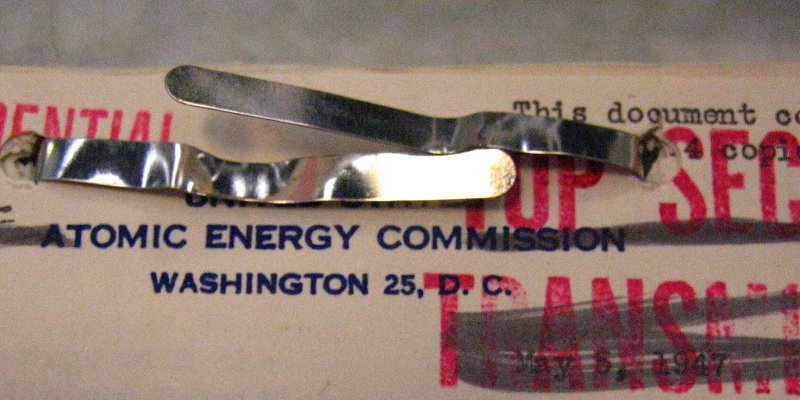12426 Tags
classification
7 Articles

Cooking with FOIA: The declassified ham sandwiches of the CIA archives
There’s a running joke on both sides of the transparency community that the standards for secrecy are so absurd that “you could easily classify a ham sandwich.” And nowhere does that dictum ring more true than in regards to the Central Intelligence Agency, which has, on multiple occasions, classified ham sandwiches.

The CIA was unimpressed with the Atomic Energy Commission’s attempts at secrecy
In July of 1955, Lewis Strauss, chairman of the Atomic Energy Commission, wrote to CIA director Allen Dulles over matters of mutual interest. In one of those letters, uncovered in the Agency’s archives, Strauss thanked Dulles for a package he had sent him, using deliberately vague terms to describe its contents as to “avoid classifying this letter.” Strauss’ efforts were in vain however. Not only was the letter classified for just shy of 50 years, but the vague descriptor itself remains classified to this day.

Read the CIA’s SECRET briefing on the 1975 Oktoberfest
An October 17, 1975 edition of the Central Intelligence Agency’s “Staff Notes” publication, formerly classified SECRET, offered regional specialists with the latest intelligence from Western Europe. While some of the topics covered warrant the hush-hush nature of the classification, some secrecy, like that around an attendance briefing at the 1975 Munich Oktoberfest, is less convincing.

The CIA and Jack Gregersen’s exploding hat
A letter in the Central Intelligence Agency’s declassified archives shows that in late 1959, the Agency received an unsolicited suggestion from a helpful citizen on how to best weaponize haberdashery. While there’s no record that the CIA ever followed through on the advice, or even responded to the letter, it apparently left enough of an impression to remain classified for the next 44 years.

What’s going on at the US Postal Service? An SF-86-gate primer
On Monday, Democratic Congressional candidate Abigail Spanberger shared that a complete, unredacted copy of her federal security clearance application, known as an SF-86, was released to a Republican opposition research group America Rising through FOIA. Here’s some background on what that means, how it might have happened, and the potential fallout.
3 Requests
Awaiting Response
Paul Galante sent this request to the U.S. Department of State of the United States of America
Completed
Restricted Data Annual Reports 2008-2018
Joseph Durso sent this request to the Department of Energy of the United States of America
Completed
Restricted Data Declassification Decisions
Martin Pfeiffer sent this request to the Department of Energy of the United States of America